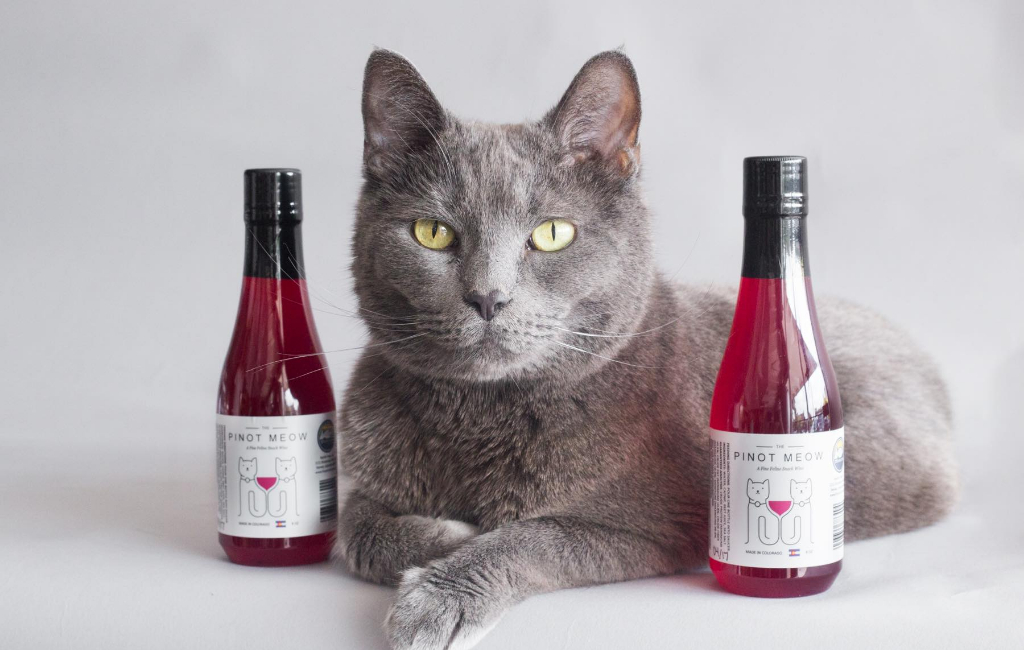CropSticks Bamboo Chopsticks With Built-In Rest
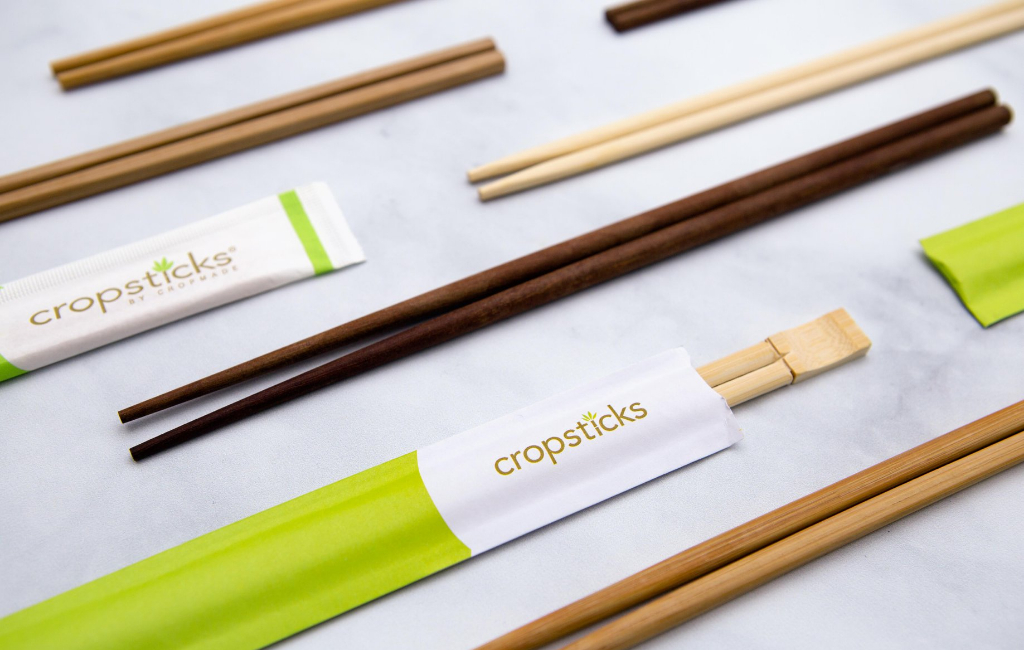
NO DEAL
EPISODE SUMMARY
🕓 Air Date: April 7, 2017
Asking For:
$75,000 for 12,50%
Investor:
No Deal
Deal:
No Deal
PRODUCT SUMMARY
CropSticks, created by Mylen Yamamoto, is a disposable chopstick with a built-in rest made from eco-friendly bamboo, aiming to address common issues with traditional chopsticks such as rolling and splinters.
WATCH HERE
IN A RUSH?
Click these to jump to the section you want to read.
Background Story
CropSticks, based in Honolulu, Hawaii, brings a unique blend of innovation and environmental consciousness to the world of disposable chopsticks. Founded by Mylen Yamamoto, the company’s story is rooted in her journey from academia to entrepreneurship. Mylen, with a background in teaching and a Master’s in Communication, initially taught English in Japan. Her passion for entrepreneurship led her to Loyola Marymount, where she continued to impart knowledge in the field. The inception of CropSticks emerged from Mylen’s realization of the drawbacks of traditional chopsticks.
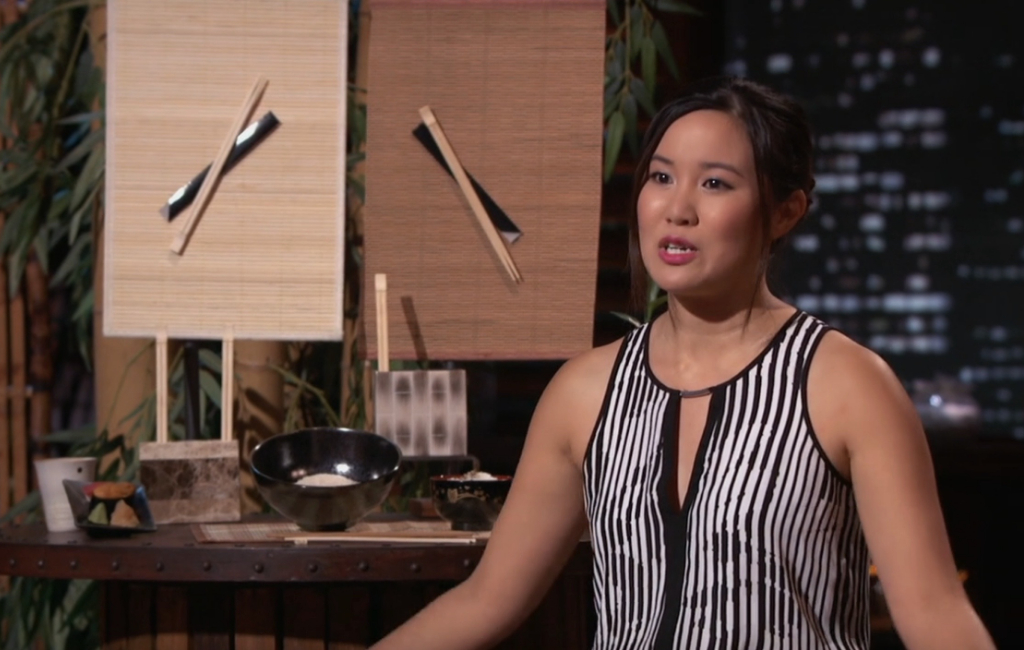
The common issues of rolling and splinters, combined with the environmental impact of using wood, sparked the idea for a better alternative. Mylen’s vision extended beyond a mere utensil – she aimed to create a sustainable and user-friendly solution. Mylen’s partner in both life and business, Ron, a sushi chef, adds a practical perspective to CropSticks. The duo recognized the challenges faced by restaurants in maintaining traditional hashi-oki (chopstick rests) and sought to provide a comprehensive solution. The couple, having tied the knot just two weeks before their appearance on Shark Tank, introduced CropSticks as a disposable chopstick with a built-in rest.
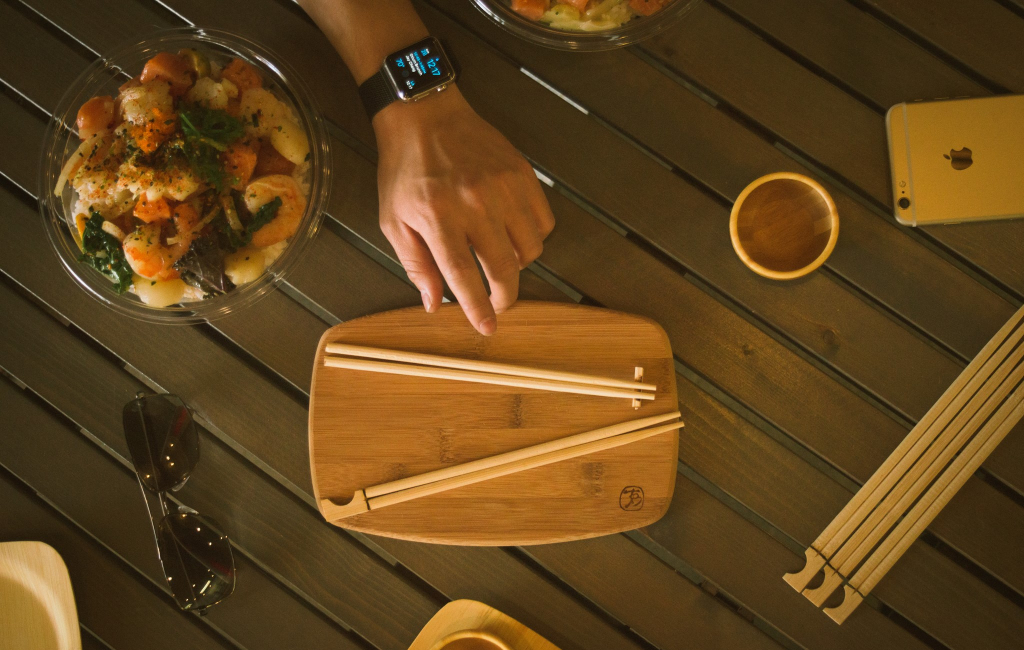
This innovation not only addresses the practical issues of traditional chopsticks but also contributes to sustainability by utilizing bamboo, a fast-growing and eco-friendly resource. Their background in education, coupled with hands-on experience in the culinary world, forms the foundation of CropSticks. Mylen’s transition from teaching entrepreneurship to becoming an entrepreneur herself showcases her commitment to turning innovative ideas into successful ventures. The journey reflects not only a passion for creating a better product but also a dedication to environmental responsibility in the culinary industry.
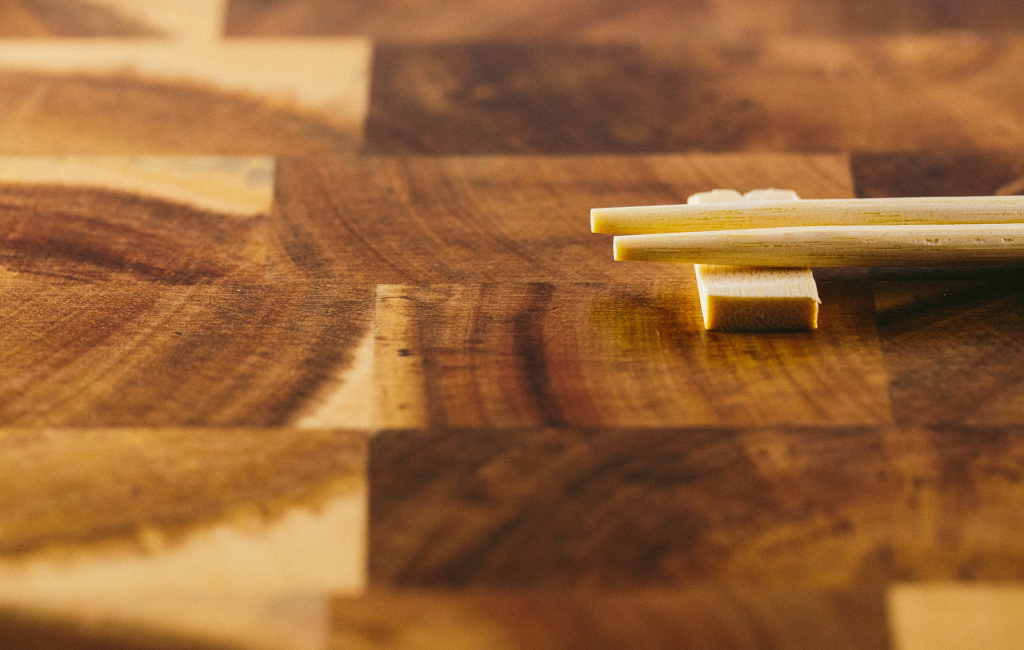
The Product
CropSticks, an ingenious creation by Mylen Yamamoto, redefines the chopstick experience with its innovative design and eco-friendly approach. Made from bamboo, a renewable resource, CropSticks introduces a practical solution to common chopstick issues.
The key feature of CropSticks lies in its snap-apart design. Users can horizontally split the chopsticks, and the top portion seamlessly transforms into a built-in rest. This addresses the inconvenience of traditional chopsticks rolling off tables and eliminates the risk of splinters upon separation. The functionality not only enhances user convenience but also elevates the dining experience, particularly in sushi establishments.
The bamboo construction of CropSticks not only ensures durability but also aligns with the company’s commitment to sustainability. The eco-friendly choice is emphasized as a crucial benefit, distinguishing CropSticks from conventional disposable chopsticks made from wood that contributes to deforestation.
CropSticks are available for purchase at a retail price of 10 cents per unit, with distributor prices set at 6 cents. The affordability positions CropSticks competitively in the market. The initial target market includes middle to high-tier restaurants, with a strategic focus on building relationships with distributors.
This approach aims to establish CropSticks as a preferred choice, offering both functionality and environmental responsibility at a reasonable cost. As CropSticks gains traction in the market, the company plans to expand its reach to broader consumer segments, including restaurants of varying tiers.
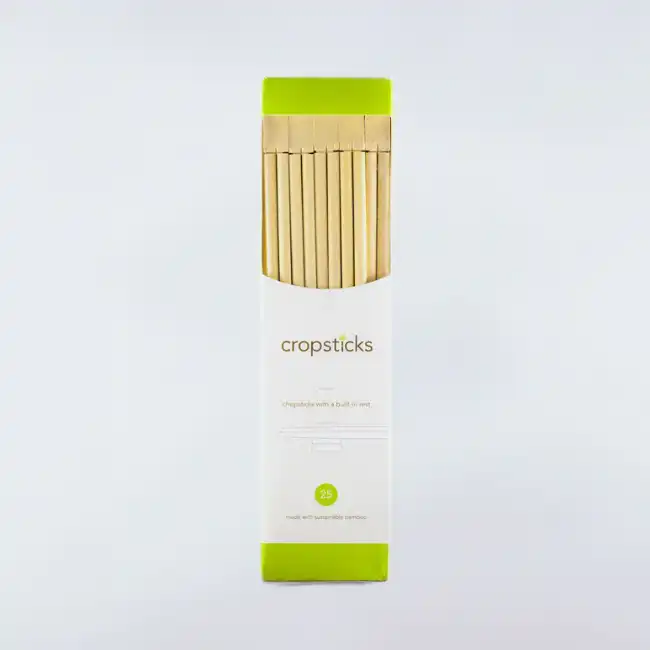
How It Went
The company’s position before Shark Tank
CropSticks has demonstrated a promising start to its journey, showcasing sound health and potential for growth in the disposable chopsticks market. The company’s initial success is evident in its Kickstarter campaign, where 21,800 units were sold, reflecting a positive reception from early adopters. Conditional purchase orders for 190,000 units, with a profit of $125,000 and a robust profit margin of 65%, further underscore the demand for the innovative product. As for partners, CropSticks has secured a significant deal with a large hotel chain, Hyatt, and a prominent Asian distribution company. These partnerships provide a solid foundation for the company’s distribution network, opening avenues for widespread market penetration.
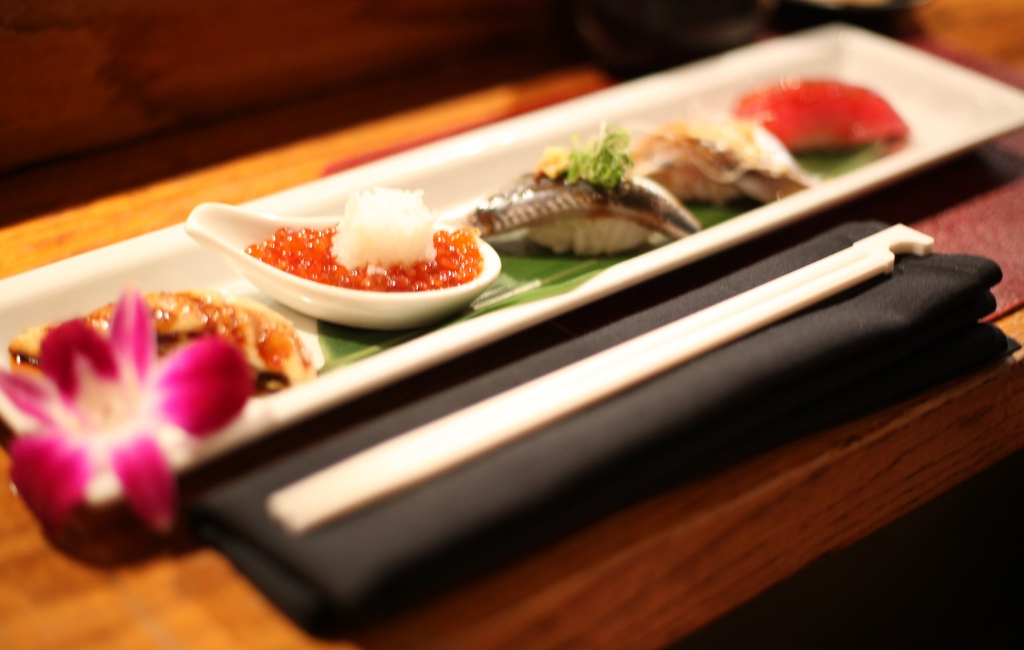
In terms of funding, the company has garnered support through its Kickstarter campaign, indicating early investor interest. Additionally, CropSticks has a provisional patent in place to protect its innovative design, signaling a commitment to long-term sustainability and growth. CropSticks’ customer base primarily includes the hospitality sector, with a focus on middle to high-tier restaurants. The strategic decision to target these establishments aligns with the company’s goal to establish a foothold in the market through key partnerships and relationships with distributors.

The company’s current structure involves relationship-building with distributors and partners, a critical phase for establishing a robust presence in the market. The focus on middle to high-tier restaurants allows CropSticks to strategically position itself before expanding to a broader consumer base. Overall, CropSticks appears to be in a healthy position, leveraging early successes and strategic partnerships to pave the way for sustained growth in the disposable chopsticks industry.
The Negotiations:
The negotiation phase for CropSticks on Shark Tank showcased both the strengths and challenges faced by the innovative disposable chopstick company. Mylen Yamamoto entered the tank seeking a $75,000 investment in exchange for a 12.5% equity stake in her company. The Sharks, while intrigued by the product’s uniqueness, raised concerns about its market viability and ability to compete with existing, cheaper alternatives. Mark Cuban and Lori Greiner both complimented Mylen on her creativity but expressed doubts about the market’s willingness to pay a premium for a branded chopstick.

Kevin O’Leary and Robert Herjavec delved into the competitive dynamics of the chopstick industry, emphasizing the cost sensitivity of restaurants and distributors. O’Leary, known for his pragmatic approach, questioned the company’s ability to convince restaurants to pay more for CropSticks. Ultimately, none of the Sharks made an offer, and Mylen left the tank without securing a deal. The prevailing sentiment was that the product, while clever and environmentally friendly, might struggle in a market where pricing is a critical factor.
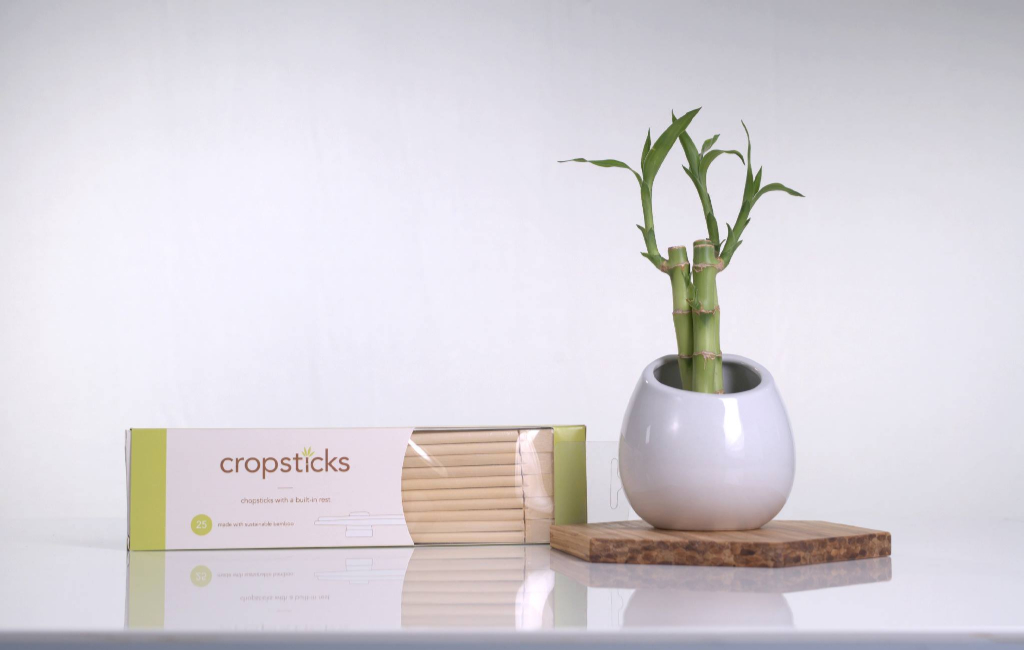
The Sharks emphasized the challenge of convincing consumers and restaurants to adopt a premium-priced disposable chopstick, especially when the cost-sensitive nature of the industry often dictates purchasing decisions. Despite the lack of a deal, Mylen received feedback on the need for a strategic approach, potentially pricing CropSticks competitively to gain market share before scaling up. The negotiation highlighted the complexities of introducing an innovative product into a market with established, cost-effective alternatives, emphasizing the importance of a well-thought-out go-to-market strategy for sustained success.






